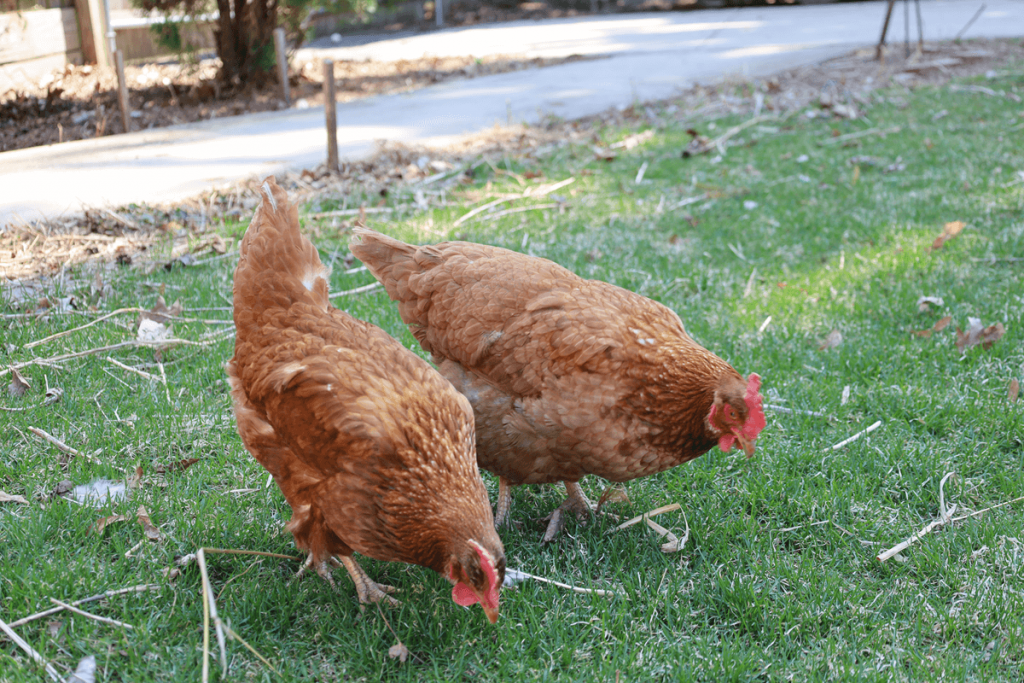Thinking of getting some chickens for your backyard? Thanks to their unique personalities, chooks make great pets and don’t need lots of space. They’re also a natural form of pest and weed control and help to reduce food waste by eating up all of those left-over kitchen scraps. And best of all, you will get a steady supply of fresh eggs!
Read on to find out all you need to know about caring for backyard chickens.
Your coop setup
Even if you’re planning on giving your chooks free range of your yard, you will still need an enclosure for when there is bad weather and to perch in at night. Your coop needs to be sturdy enough to provide protection against predators and extreme weather conditions. It should also be well-ventilated and insulated. The coop should have nesting boxes for egg-laying and roosting bars for the chickens to perch at night.
If your chickens aren’t going to roam freely in the daytime, ensure your coop includes a secure outdoor run where the chickens can have the space to move about freely throughout the day.
The Town of Gawler doesn’t have any regulations surrounding the keeping of poultry unless you’re building the Taj Mahal of chicken coops and need development approval.
The council does expect that you keep a well-maintained and managed coop and ensure you “have the appropriate care and management to prevent anything becoming a nuisance to surrounding properties such as appropriate waste and vermin management.”
Diet
Good quality commercial chicken feed forms the foundation of a backyard chicken’s diet. You’ll find that there are three different types of chicken feed, depending on the life stage of your chooks:
- Starter feed – for baby chicks up to 6 weeks of age
- Grower feed – for young hens between 6 weeks – 18 weeks of age
- Layer feed – for laying hens
You can also supplement your chickens’ diet with kitchen scraps such as leafy greens, carrots, pumpkin and fruit (but no rhubarb, green potatoes or avocado. If you have the space, they can also forage for insects, seeds and plants.
Access to plenty of fresh water is also key to healthy chickens, and healthy eggs. An adult chicken drinks around 400ml of water per day – and even more if the weather is hot, or they are laying – so it’s best to provide multiple containers of water both inside and outside the coop that can’t be easily knocked over.
Veterinary care
While chickens may be lower maintenance than other hobby farm animals such as horses, they still require veterinary care.
Regular deworming is an important aspect of backyard chicken care to ensure the health and well-being of your flock. Your vet will be able to assist with an appropriate deworming treatment regime and schedule tailored to your specific circumstances.
It’s also important to keep a close eye on your chickens’ behaviour and condition. Chooks are notorious for hiding signs of illness; however, they are quite susceptible to various viruses that can make them very unwell. Look out for signs of lethargy and weight loss and organise a consult with your vet ASAP if these symptoms arise.
Providing veterinary care to animals big and small
Here at the Cameron Veterinary Services, we love looking after all types of animals, large and small. Our vets are highly experienced in caring for both domestic and farm animals, including backyard chickens.
To make an appointment with one of our vets, you can call our friendly team on 08 8318 1801.



